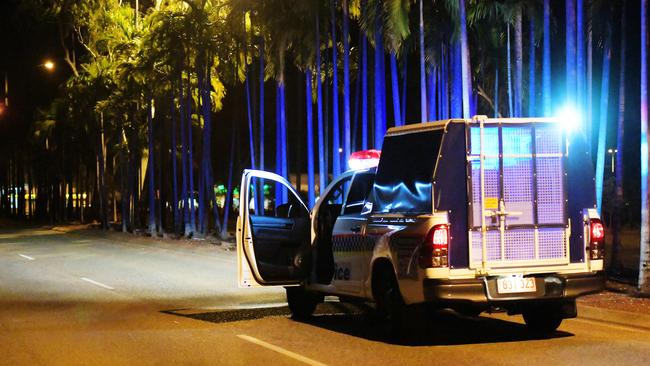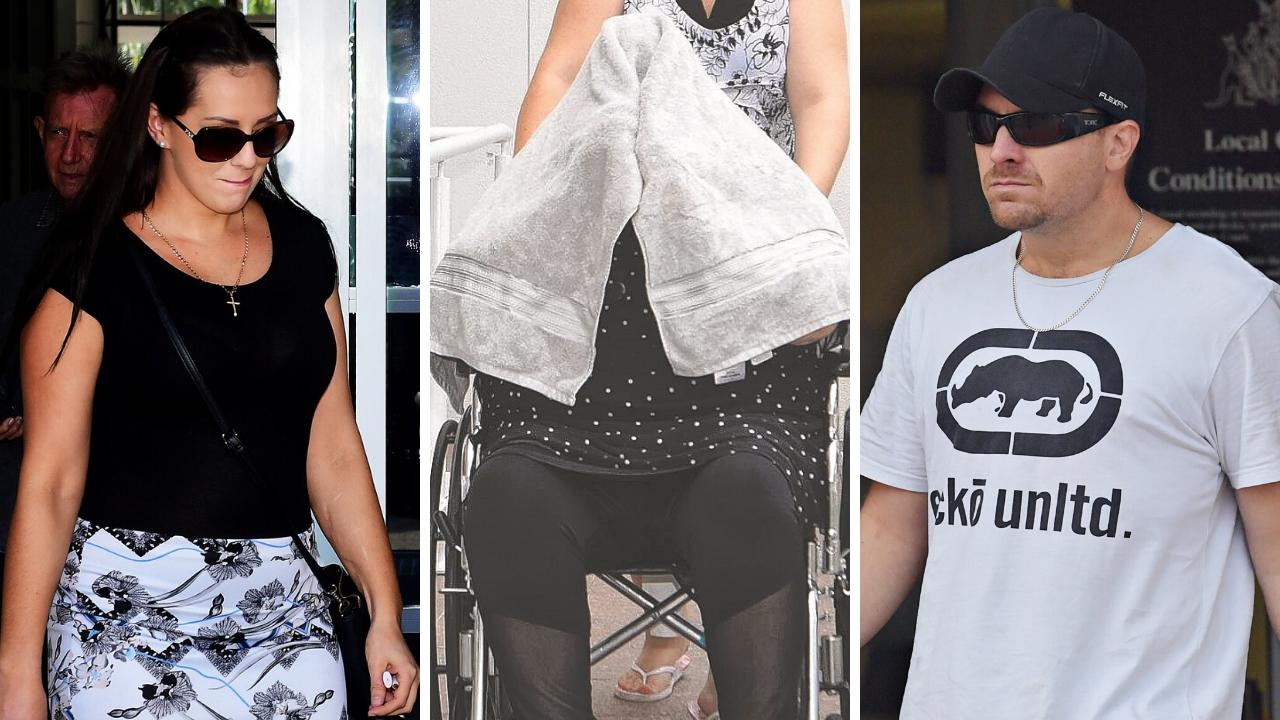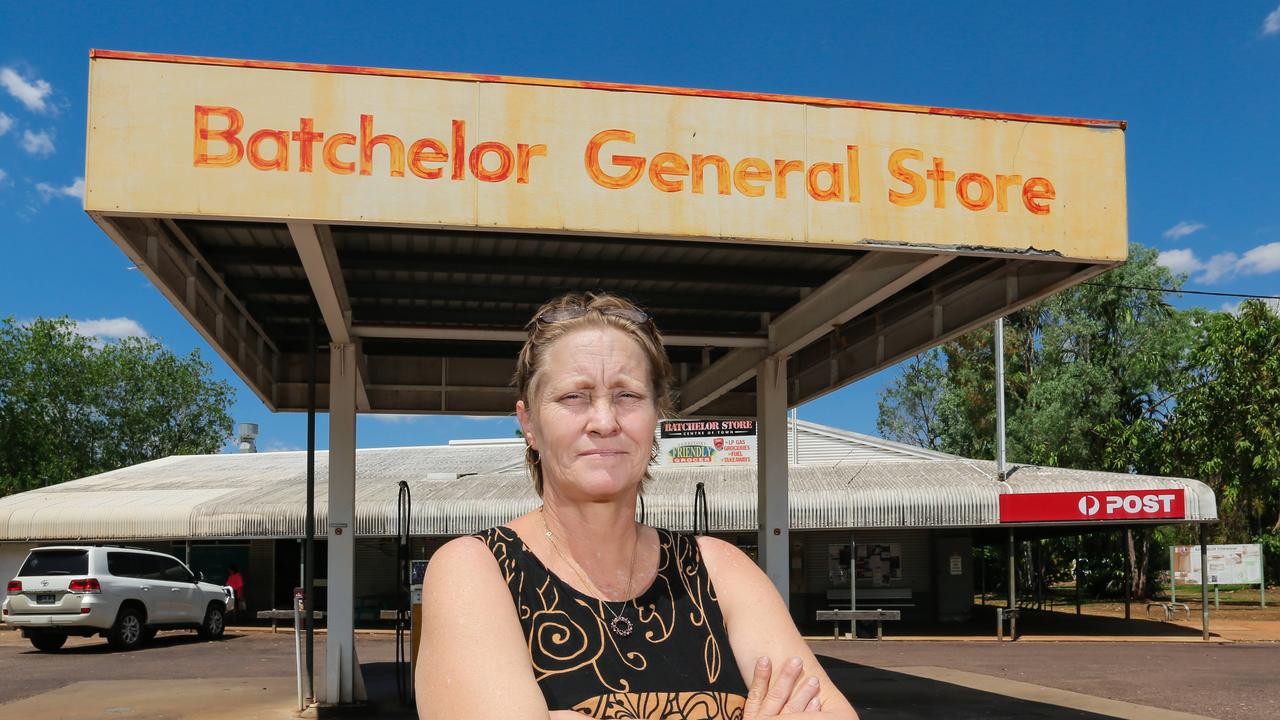How the NT’s justice system is failing indigenous Territorians
‘People say they don’t even bother ringing triple-0 anymore because they don’t get a response.’

Crime and Court
Don't miss out on the headlines from Crime and Court. Followed categories will be added to My News.
CALLERS to triple-0 in the Northern Territory can report their emergency in as many as 54 different languages, reflecting the Territory’s proud multiculturalism and heavy reliance on the tourist dollar.
A backpacker who falls victim to a mugging on the streets of Darwin can be instantly put through to a fluent speaker of almost any of the major languages on Earth to report the attack.
But for an Aboriginal woman one street over — visiting from a remote community and not fluent in any of the languages not native to Australia — who finds herself on the receiving end of a violent domestic assault, that option doesn’t exist.
Despite the fact that 15 per cent of Territorians speak an indigenous language at home and many speak English as a second, third or fourth language — not a single one of those 54 languages available in an emergency is Aboriginal.
The issue was raised in one of the many “traumatic” conversations that Aboriginal Justice Unit director Leanne Liddle has had during two years of consultations on the NT’s first Aboriginal Justice Agreement, released in draft form last month.
“So at your greatest time of need and for 30 per cent of the population, of which (more than half) speak (an indigenous language) at home, whether you’re a victim of crime or your witnessing a crime you may not be heard and get the response you really should be entitled to,” she says.
“They can link you up straight away with a German interpreter, (but) you ring triple-0 here, you try to get access to an Aboriginal interpreter in say, Warlpiri language — can’t happen.”
Ms Liddle says she was told the lack of Aboriginal interpreters meant there were times when a situation that could have been nipped in the bud instead resulted in costly medical interventions when things spiralled out of control.
“There are comments that are in the agreement where people say ‘Look, I rang triple-0, I didn’t get a response until 12 hours later’, people saying they don’t even bother ringing triple-0 anymore because they don’t get a response,” she says.
Ms Liddle says the issue is just one of the many examples of institutionalised, systemic racism denying Aboriginal Territorians a fair go in the justice system and contributing to shamefully high rates of indigenous incarceration.
“Disadvantage has lots of pressure points but one of those pressure points that’s quite corrosive that isn’t really being addressed is the impact of racism, institutionalised, systemic and just prejudice in general and how that’s causing the injustices,” she says.
“A lot of people think it’s just a matter of doing policy reform or it’s just a matter of putting in new legislation or things like that but really it needs it to be turned on its head and actually exposed and for Aboriginal people to be part of the solution.”
- HOW police dithering left a convicted rapist who fled his trial free to kill his next partner
- PASSED out Aboriginal women left exposed to sexual predators: Court
- NT RIOT police allegedly ‘pointed assault rifles’ at Aboriginal children
THE most common charge laid against Aboriginal Territorians falls into the statistical grouping known as “acts intended to cause injury”.
Non-indigenous Territorians are charged with these offences as well — but often with very different consequences when they come before a judge.
In the case of non-Aboriginal offenders, almost half — 46 per cent — are locked up.
But for indigenous people guilty of the same type of crime that figure is much higher, with more than three-quarters of them sentenced to a stint behind bars.
Even once relative disadvantage and other complicating factors are taken into account, Ms Liddle says the outcomes are still disproportionately skewed to give Aboriginal people a raw deal.
“If we were identical twins, which is impossible, but say were identical twins and we went before the court, the outcome would be different if I went before the court and you (as a non-indigenous person) went before the court — exactly the same history and background,” she says.
“The likelihood of me having a criminal history and not having secure housing and employment is a factor that is predominantly put on the table but at the end of the day the data spoke for itself and that’s what the community told us was the outcome when they went before the courts.”
The good news is, as a result of the first round of consultations, things are already changing.
Starting next month, NT Police will trial a scheme employing two Aboriginal interpreters — one from the Top End and one from the Red Centre — to answer distress calls from the bush.
“This trial will identify exactly what the change needs to be and it’s been welcomed by the community as a way forward and us not waiting until we finish a document, a further consultation, actually reacting and making the changes as we go along,” Ms Liddle says.
Equally, conversations have begun with the Territory’s judiciary about alterative pathways to rehabilitation that don’t involve building more prisons to house First Australians.
“I don’t think the data’s ever been presented or identified like this before and it’s a conversation that we need to have, as we did with the NT Police about access to interpreters,” Ms Liddle says.
“Now that we know this, this is an ability for us to start a conversation with the judiciary about what options do you have for Aboriginal people when they come before your courts.”
JUST $1 a week: OUR best ever, amazingly cheap NT News subscription deal
Once completed, the Aboriginal Justice Agreement will join countless other reports into the ways in which Australian justice has failed the nation’s oldest inhabitants.
But this time Ms Liddle says she is confident the commitment to change is real.
“If 85 per cent of the adult prison population isn’t enough to shift our conscience to do something about it and almost 100 per cent of kids in youth detention being Aboriginal isn’t enough to shift us to do something about it that is focused and informed and evidence based, I don’t know what will,” she says.
“That the reality is that my kids are likely to go to prison more than what they’re likely to go to university — I don’t know how we can allow that to happen in a Lucky Country, it’s just impossible to think that we just allow that to be the status quo.
“Is that my destiny? Is that my kids’ destiny? I don’t want it to be.”
Leanne Liddle will deliver the 2019 Menzies Oration at the Royal Darwin Hospital Campus on Thursday.


